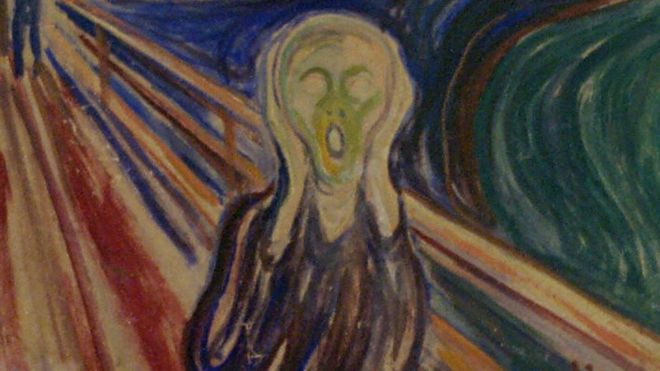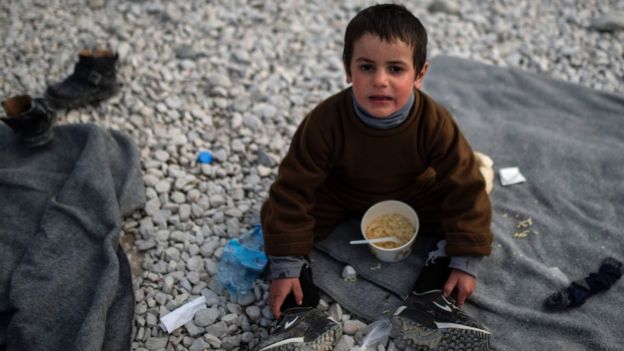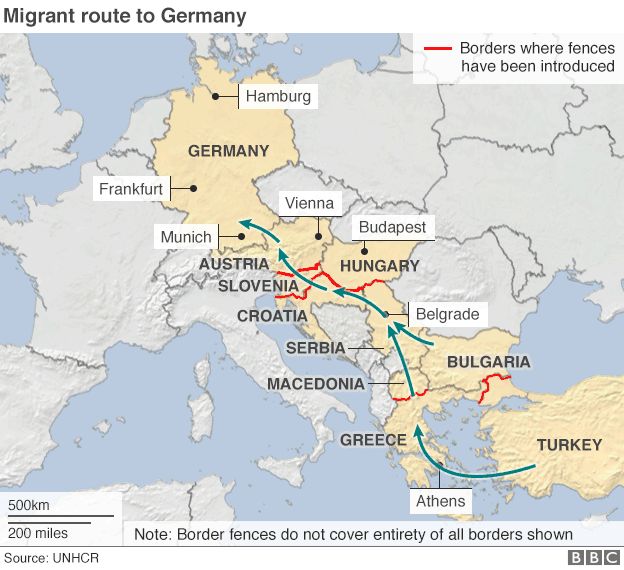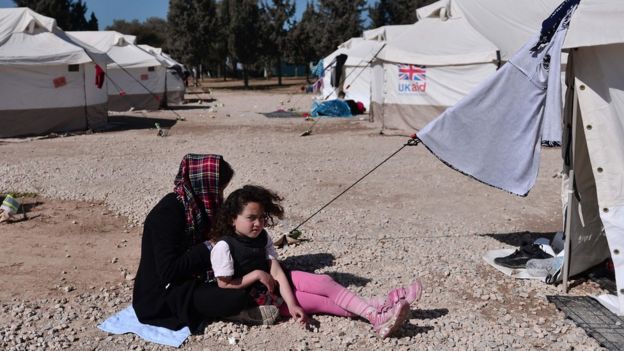
"The EU's migrant chaos, embodied in Edvard Munch's The Scream, that's basically what you're saying," my colleague noted wryly after I had recounted at length the mess the EU is in over uncontrolled migration.
She was not hugely off the mark.
I had described countries across the continent, united in that they face the same crisis, but so very divided in their attitudes and decision making.
After months of bad press and even worse co-ordination, I had commented that it is as if every EU country now has its metaphorical hands over its metaphorical ears in this migrant crisis, hence the Scream analogy.
Take this week: Germany is still calling for an EU-wide solution, praying fervently that a very shaky accord with Turkey will lead to Ankara clamping down on the boat-filling people smugglers.
But Austria and the Western Balkan countries that most arriving refugees and other migrants pass through on their way to wealthier northern Europe think that is pie in the sky.
They held an extraordinary meeting in Vienna a couple of days ago to discuss unilateral ways to stop asylum seekers entering their territory in such large numbers.
 AFP
AFP
One after another, these countries are unilaterally imposing limits on the number of asylum seekers they are allowing in each day.
And who was not invited to the Vienna pow-wow?
This is a case where omission screams louder than words: Greece.
The main entry-point to Europe for most of these refugees and other migrants, around 100,000 already this year.
Greece: A country struggling socially and financially under a suffocating debt burden.
Greece, which, with the Balkan countries slamming their gates shut, is becoming a restive holding pen for thousands of frustrated asylum seekers.
Two tried to publicly hang themselves in Athens this week.
But European colleagues are not listening to Greek protestations.
Greece is certainly guilty of ignoring EU regulations for months last year, waiving refugees and others onwards and northwards over its border rather than encouraging them to claim asylum immediately.
 AFP
AFP
But under pressure and a threat of expulsion from Europe's passport-free Schengen travel area, Greece is now beginning to get its organisational act together.
In the meantime, though, it has been sidelined as an EU decision maker and serious player.
Prime Minister Alexis Tsipras feels so ignored that he pretty much held David Cameron's EU reform deal to ransom at the recent EU summit.
He demanded that he be listened to on migration first before making his contribution to what had to be a unanimous vote of confidence in the UK deal.
The Scream analogy fits in other ways too.
It embodies the anguish you see on the faces of recently arrived refugees in Greece, fleeing the horror of near-death experiences, under bombardment at home and at sea in the Mediterranean.
The painting also radiates a sense of fear and anxiety, a feeling of being exposed and unprotected.
 AFP
AFP
These a widely-felt sentiments across the EU when it comes to migration.
That is often the reaction I hear when travelling across Europe from Greece in the south to Sweden in the north.
Consider the rising support for the virulently anti-immigrant AfD party in Germany, which is expected to make spectacular gains in key regional elections in a couple of weeks' time.
There is an uncomfortable recognition in EU circles here in Brussels that the shambles and European infighting surrounding the migrant and refugee crisis could have a decisive influence on British voters as they weigh up whether to vote Stay or Leave in their forthcoming referendum on EU membership.
Asked whether he would intervene in the referendum campaign, the President of the European Council Donald Tusk said he did not think it would be a good idea but he felt the most effective thing he could do to encourage British voters to stay in the EU, was to work hard to solve the Europe's migrant fiasco.
As things stand, Mr Tusk and his colleagues fear the reports and images of the migrant crisis from Lesbos to Munich to Calais could well send hitherto undecided voters screaming in the opposite direction to EU membership. http://www.bbc.com/news
No comments:
Post a Comment